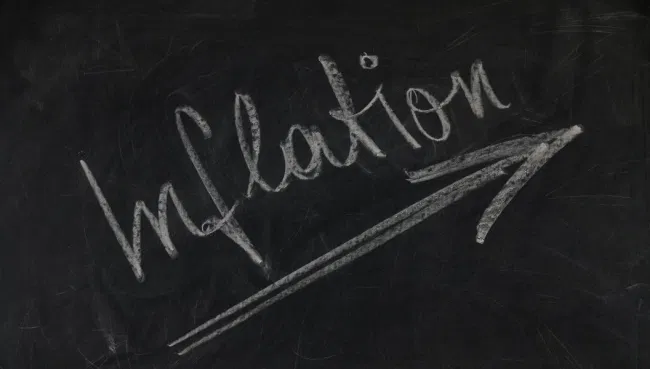4 provocative thoughts on inflation and (possible) Fed actions

Inflation and Fed interest rates are among the most watched topics for analysts and investors. However, there has already been enough dry description of the numbers. Barry Ritholtz of the investment firm Ritholtz Wealth Management tried to spice up the discussion around price inflation and the (possible) actions of the US central bank and came up with some contrarian thoughts.
1. The Fed's actions are having a rapid impact on the economy
Until 1994, the US Federal Reserve did not issue any statements or hold press conferences at the conclusion of monetary policy meetings. It may indeed have taken up to 18 months for the Fed's actions to feed through to the economy. Today, however, a year and a half seems excessive. The modern economy is based on credit and the Fed is extremely transparent, so the lag between its actions and their impact on the economy is undoubtedly significantly shorter," says Ritholtz.
2. Low unemployment is an anti-inflationary factor
The US Federal Reserve was convinced that if it wanted to beat high inflation, the appropriate "tool" was to raise the unemployment rate, which would lead to a drop in consumer confidence and curb spending by the unemployed, as well as the employed worried about their jobs. Barry Ritholtz, on the other hand, thinks that the higher the unemployment rate, the bigger the inflation problem would also be. He explains that the U.S. labor market is suffering from a shortage of workers, so a larger labor force eases the upward pressure on wages as firms fight for employees.
3. Tightening monetary policy increases house prices
One of the reasons for the sharp rise in residential property prices in the United States, according to experts, is the weak construction of single-family homes after 2008. In addition, Ritholtz believes that interest rate hikes by the central bank are driving up real estate prices. The higher the rates, the less affordable mortgages become. And it is the prospect of a difficult and lengthy sale, he says, that is limiting the supply of older homes and therefore keeping prices of properties sold higher.
4. Lower rates to lower inflation
Related to the above, Ritholtz even speculates that the Fed, in order to tame inflation, should lower interest rates. "High rents, expensive real estate, and rapid wage growth due to worker shortages all get worse as interest rates rise," he says. If the central bank had the courage to take the unorthodox route of cutting rates, he says, the problem could have been long over under certain conditions.

Great, nicely written. It makes sense to me and when I think about it, it makes even more sense😅. The Fed should read these 4 points and think about them. Of course, as Luke wrote, I am not an economist either.
Nice 4 points of reasoning and I'm no economist but I like it, it makes sense. But if as Tomas writes it didn't help in Turkey, on the other hand you can't really compare Turkey and the US, so who knows ... I definitely think that a bit more thought should be given to the current management of the economy, because it seems to me that everything is just sort of delayed to make it appear as if they have solved it, but then the whole "merry-go-round" starts all over again. Especially in the area of debt.
Turkey's already tried that route, it didn't work.